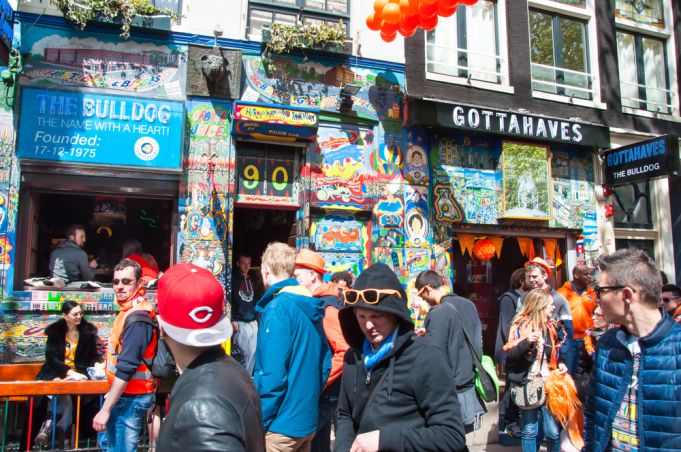Amsterdam bans coffee shops to foreigners and tourists
Amsterdam bans coffee shops to foreigners because of too many tourists.
"We won't end up like Venice," the idea is to reserve them for residents. Shopkeepers are against it. After limitations were set in the red light district, the prohibitions for those who visit the city increase.
"No more tourists arriving for the drugs," announced the mayor of Amsterdam, the Green party’s Femke Haselma. "We don't want to become like Venice, suffocated by hit-and-run tourists who only want to buy marijuana or hashish." The mayor's proposal to eliminate the sale and consumption of drugs by tourists in coffee shops is supported by the police and the city council. After the closure of the red light district, will Amsterdam no longer be "the European capital of sin?".

Bulldog coffee shop
The coffee shops will not be closed, but they can only be frequented by residents. Femke Haselma, 54, who was elected two years ago, is confident that she will be able to pass the law by 2022, even though a similar initiative was rejected ten years ago. "The drug market attracts criminals and drug dealers from all over Europe,” said the mayor.
Joachim Helms, on the other hand, who is a spokesman for clubs where drugs and marijuana are sold freely, contests that "This is a moral proposal and not very concrete. In our places you can smoke without risks, in safety. The sale is controlled. The prohibition will only encourage illegal dealing".
If tourists are banned, few places will survive. The first coffee shop was opened fifty years ago, in 1970. Amsterdam became a paradise for young people, soft drugs were legal, you could smoke marijuana without any risk. Entrance was forbidden to those under 18 years old. But, in recent years, despite the alarm of the mayor, the sector has been suffering a slow crisis: there were 283 coffee shops twenty years ago, today there are 166, thirty percent of the smoking establishments in the country. According to the police, the number of Dutch customers has decreased in comparison to foreign tourists.
From neighboring Germany and Belgium, thousands of customers arrive by car, stopping only long enough to buy drugs and then leaving, without spending a single euro in hotels or restaurants, and without even filling up their gas tanks. In 2019, before the covid epidemic, ten million tourists arrived in Amsterdam. Even during the lockdown in Amsterdam, coffee shops remained open. There were probably many more tourists, perhaps almost twenty million, but those who stay only a few hours are not counted.
According to one survey, 57 percent of the curious foreigners wandering through the red light district would come just for the marijuana. Smoking before sex.
But since 1 January, 2019, the famous women's quarter has been closed to organized tourism. No more groups of visitors wandering around like at a zoo and looking at the featured girls in the windows. In the red light streets around the Oude Kerk, the old church, the oldest building in the city, every weekend, and in summer every day, there were crowds of peeping toms. Up to a thousand tour groups on weekends, and the record for the Ouedekerksplein, the square in the center of the neighborhood, was 48 tour groups in one hour. "We are not thinking of banning prostitution, God forbid", assures Mrs. Femke. "We wanted to protect sex workers. The ‘just curious’ turned away the real customers."











